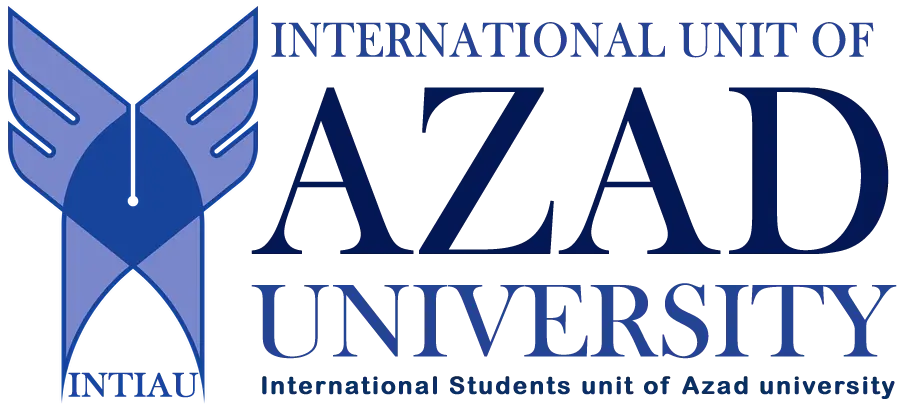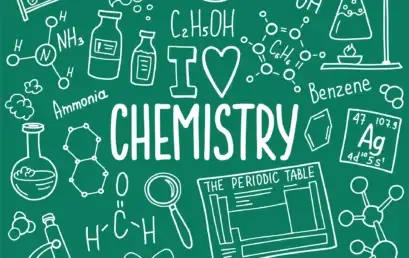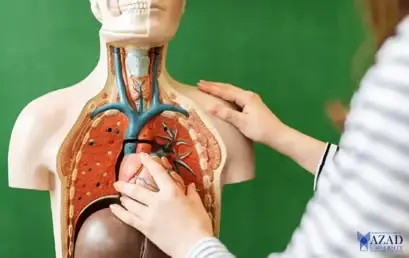Mathematics Education INTIAU
Mathematics Education Course Blog Post
Are you a math teacher looking for innovative teaching strategies? Or perhaps a student who struggles with math and wants to improve their understanding? Look no further than a Mathematics Education course!
In this course, you’ll learn the theory and practice of teaching mathematics. You’ll explore different teaching methods and strategies that can help your students comprehend and appreciate mathematics. The course will cover the most important principles and concepts that are essential for teaching math, such as classroom management, assessment, and different types of learning styles.
By the end of this course, you’ll be able to design effective lesson plans, create engaging classroom environments, and evaluate the effectiveness of your teaching strategies. You’ll develop skills that can help you build strong relationships with your students, mentor them, and help them achieve their full potential in math.
So, whether you’re looking to improve your own math skills, or if you’re passionate about teaching others, a Mathematics Education course can be an invaluable asset to your career. Sign up today, and start gaining the knowledge and skills that can help you become a better educator.
INTIAU Chemistry
INTIAU Chemistry is a scientific discipline that deals with the study of the composition, structure, properties, and behavior of matter. It is an extremely important field of study that has numerous applications and touches our everyday lives in countless ways.
Chemistry is the foundation of many industries, including food, pharmaceuticals, cosmetics, and energy. Some of the biggest challenges of our time, such as climate change and the search for alternative sources of energy, also require the knowledge and innovation of chemists.
INTIAU Chemistry is not just limited to natural and organic compounds. It also encompasses synthetic and inorganic molecules, nanoparticles, and materials that have revolutionized industries and technologies. The field has also contributed in developing innovative techniques, such as spectroscopy and chromatography, which have enabled chemists to analyze, identify, and understand different substances in great detail.
In conclusion, INTIAU Chemistry is a vital subject that is advancing scientific knowledge and improving the quality of life worldwide. It is a fascinating field that offers numerous opportunities for research, exploration, and discovery. If you have an interest in science and a passion for innovation, then this is the perfect subject for you.
Russian Language Teaching Course
Welcome to the Russian Language Teaching Course! In this course, you will learn everything you need to effectively teach the beautiful Russian language to learners from all over the world.
Whether you’re an experienced language teacher or just starting out, this course will give you the tools and techniques you need to create engaging and effective lessons for your students. You’ll learn about Russian grammar, pronunciation, vocabulary, and culture, as well as the most up-to-date methods and technologies for teaching foreign languages.
Through interactive exercises and real-life examples, you’ll gain a deep understanding of the nuances of Russian language and culture, and develop an ability to help your students navigate the complexities of this fascinating language.
By the end of this course, you’ll be ready to confidently and competently teach Russian to students of all ages and backgrounds. Join us on this exciting journey and discover the joys of sharing the gift of language with others.
German Language Teaching Course
Learning a new language can be daunting, but with the right tools and resources, it can be an enjoyable and rewarding experience. That’s where a German Language Teaching Course comes in.
A German Language Teaching Course is designed to teach learners the basics of the German language, starting from basic vocabulary and grammar to more advanced language skills such as conversation, reading, and writing. With a qualified language instructor, one can expect to receive personalized instruction that caters to their learning style and pace.
One of the advantages of taking a German Language Teaching Course is that it provides access to a community of learners who are equally motivated to learn the language. In addition, a language course may include cultural components, giving learners insights into German culture and history.
Ultimately, a German Language Teaching Course has numerous benefits that far outweigh the initial challenges of learning a new language. The course will equip learners with practical language skills that can be used in real-life situations and offer opportunities for growth and development beyond language learning.
French Language Teaching Course
Bonjour tout le monde! Welcome to our French language teaching course blog!
Today, we want to share some tips and tricks for effective French language teaching. Whether you’re a seasoned teacher or just starting out, these tips will help you create engaging and meaningful lessons for your students.
Firstly, it’s important to make learning fun! Incorporate games and activities into your lessons that will allow your students to practice speaking, reading, writing and listening in a fun and interactive way.
Secondly, focus on building a strong foundation of the basics. Ensure that your students have a good understanding of French grammar, vocabulary and pronunciation. Once these foundations are established, your students will be much more confident in their ability to speak and comprehend French.
Thirdly, provide opportunities for your students to practice their French language skills outside of the classroom. Encourage them to listen to French music or watch French films, and provide them with online resources such as language-learning websites and apps.
Finally, make yourself approachable and available. Create a safe and open learning environment where your students feel comfortable asking questions and seeking clarification. This will help to foster a positive and productive learning experience for all involved.
We hope these tips have been useful to you and wish you every success in your journey to becoming an exceptional French language teacher! À bientôt!
English Language Teaching Course
English Language Teaching course aims to prepare individuals with the necessary knowledge and skills to teach English as a second language. In today’s globalized world, English is considered the universal language of communication. Thus, the demand for qualified English language teachers is continuously increasing.
Through this course, students will learn about the principles of language teaching, methods and techniques, and how to design lesson plans. They will also explore the English language system, including grammar, vocabulary, and pronunciation, and how to effectively teach these aspects to students.
Moreover, students will gain valuable experience through teaching practices and observations in real-life settings. This course equips students with the tools to become effective English language teachers, allowing them to positively impact the lives of their students.
In conclusion, if you have a passion for teaching and a love for the English language, an English Language Teaching course is an ideal opportunity to pursue your interests while making a valuable contribution to society.
Higher Education Management
Higher Education Management is a constantly evolving field that requires intentional leadership, effective communication, and strategic decision-making. As leaders in this field, it is our responsibility to navigate the complex challenges that come with overseeing institutions of higher education.
One of the key challenges we face is ensuring that our institutions are accessible and equitable for all students. We must work to dismantle systemic barriers that prevent marginalized communities from accessing higher education.
Another important area of focus is sustainability. As leaders in higher education, we have a responsibility to prioritize environmental sustainability and to model sustainable practices for our students and communities.
Finally, effective higher education management requires open and honest communication. We must prioritize transparency and establish channels for meaningful dialogue with all stakeholders, including students, faculty, staff, and community members.
Ultimately, the success of higher education management relies on our ability to lead with intention, prioritize equity and sustainability, and foster open lines of communication. By doing so, we can ensure that our institutions are well-positioned to serve our students and communities for generations to come.
Health Promotion and Education
Health promotion and education are two essential components that should be a part of everyone’s daily life. These practices can help individuals maintain good health and prevent the onset of chronic health conditions. Health promotion focuses on building healthy lifestyles that accommodate physical, emotional, and mental well-being, whereas education aims to provide people with the knowledge and skills they need to make informed decisions about their health.
Good health promotion practices include regular exercise, healthy eating habits, avoiding drug and alcohol consumption, getting enough sleep, and maintaining social relationships. Education, on the other hand, can offer guidance on how to identify early warning signs of health problems, how to manage stress, and how to seek appropriate medical attention.
By prioritizing health promotion and education, individuals can reduce their risk of developing chronic diseases, improve their quality of life, and increase their lifespan. Therefore, it is imperative that governments, institutions, and medical professionals prioritize health promotion and education in their policies and practices.
Anatomy and Embryology Course
As we are all products of embryonic development, it is fascinating to learn about anatomy and embryology. Anatomy is the study of the structure of an organism, while embryology is the study of the development and formation of an organism from conception to birth.
Embryology is a crucial field as it provides knowledge about the early stages of human growth. It gives us insights into how tissues and organs form and how they interact with one another. This information helps medical professionals better understand congenital abnormalities and developmental disorders. Embryonic stem cell research is also an essential area of study in embryology. This research has led to numerous medical breakthroughs, such as the development of treatments for spinal cord injuries, diabetes, and heart disease.
Similarly, understanding the anatomy of the human body is also vital. Medical professionals and researchers continue to study and learn about the complex structures of the body and how they function. This knowledge is used to diagnose and treat diseases and injuries.
In summary, anatomy, and embryology are critical fields to understand our existence. With continued research and advancement in these areas, we can continue to make strides in medicine and better understand the complexities of human development.
INTIAU Petroleum Economics
Petroleum Economics is the branch of economics that deals with the study of economic principles, theories, and concepts applied to the oil and gas industry. The study of petroleum economics focuses on maximizing the profit potential of oil and gas resources through efficient exploration, production, and distribution strategies. The oil and gas industry plays a crucial role in global economic development as it is the primary source of energy for transportation, manufacturing, and various industrial processes.
Petroleum economics involves analyzing financial and economic data to make appropriate investment decisions in the oil and gas industry. It also helps to understand the effects of policies such as taxation and regulation on the industry. Effective management of petroleum resources can also result in positive environmental outcomes by reducing the environmental impact of oil and gas exploration and production.
In conclusion, petroleum economics is a critical aspect of the oil and gas industry, and professionals in the field play an essential role in making informed investment and management decisions. It is a dynamic and constantly-evolving field that contributes significantly to the growth and development of our global economy.










